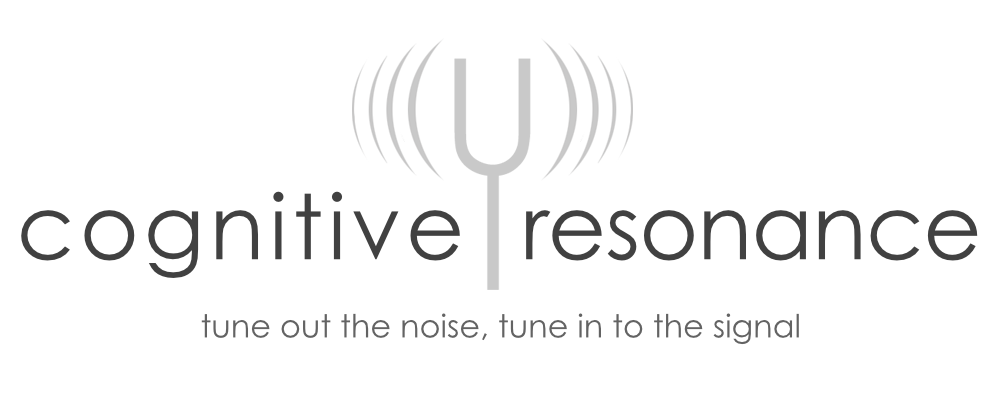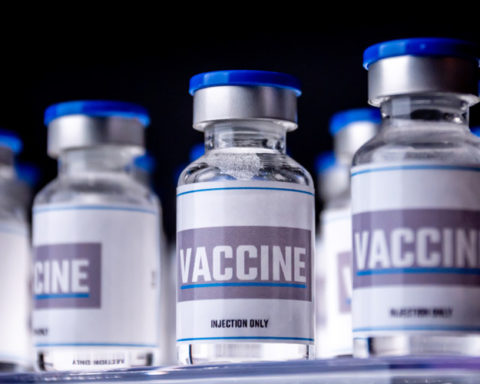The globally influential US Food and Drug Administration (USFDA or FDA) has given the BioNTech/Pfizer COVID19 vaccine full greenlight for those over 16 years old.
Could this rapid approval, coming a year and eight months before the vaccine trial was estimated to finish, have been done for other reasons? Reasons that might make you go “hmmmm?” perhaps?
We at CogRes are not medical or pharmaceutical experts. Having seen so much chicanery, corruption and manipulation around the pandemic, we are just trying to make sense of it all, leaning on those who are better qualified (or funnier).
So why are we so freaking cynical?
Before plunging into our questions about the approval itself, it’s worth saying two key but contrasting things about “Big Pharma”, the uber profitable collection of pharmaceutical corporations of which Pfizer is a major player:
1) We know they make and disseminate lifesaving medicines, which most of us take at some point. We are also sure many of those working for these rich, profitable firms are honest, hard-working people doing their very best.
2) Big Pharma’s reputation for corrupt practices, ‘revolving doors’, ruthless price gouging, trickery, profound dishonesty and outright criminality is well earned. It’s not for no reason that some compare Big Pharma to the mafia, although the death tolls attributable to the industry’s dark arts are orders of magnitude higher than anything organised crime can claim. The carnage is more in line with, say, the US military.
Just take the unimaginable scale of the ongoing opioid crisis in the US (with an estimated death toll of some 600,000 souls) and the current round of law suits against pharma companies for their role in it.
See “Dr Peter Gøtzsche exposes big pharma as organized crime” (below) or Dr Marcia Angell’s “The Truth About the Drug Companies” Lecture if you are ready to further explore the sordid nature of the industry. If you can get to see HBO’s “the Crime of the Century” – you MUST watch it!
So, what was the rush?
In June, some 30 scientists and patient advocates including Peter Doshi, senior editor of the British Medical Journal (BMJ) wrote an open letter to the FDA urging caution on approving any COVID19 vaccines too early. The group wrote:
“slow down and get the science right—there is no legitimate reason to hurry to grant a license to a coronavirus vaccine.” We believe the existing evidence base…is simply not mature enough at this point to adequately judge whether clinical benefits outweigh the risks in all populations.”
See Why we petitioned the FDA to refrain from fully approving any covid-19 vaccine this year – The BMJ
Does the data justify the full approval of a covid-19 vaccine?
This question comes from the afore-mentioned Doshi, whose University of Maryland research focus is drug approval, in a BMJ opinion piece on the announcement. The FDA didn’t take his group’s open letter to heart, obviously.
Doshi’s piece is definitely worth a careful read and poses many serious questions. These include a lack of transparency, early data cut-off and how emerging evidence of rapidly waning vaccine efficacy affects things. “Waning efficacy has the potential to be far more than a minor inconvenience; it can dramatically change the risk-benefit calculus.” writes Doshi.
Read Doshi’s BMJ opinion piece Does the FDA think these data justify the first full approval of a covid-19 vaccine?
Watch “Major MED Journal: Criticizes “RUSHED” FDA approval of COVID vaccine”
Why aren’t cardiac problems the heart of “the story”?
The FDA’s press release has a passage which reads like a bit of bombshell, though no statistics on numbers affected or probability of impact are offered (not even those ubiquitous claims of the adverse effects being “rare” or the risks “tiny”). Myocarditis and pericarditis – forms of heart inflammation – are highlighted as known side effects, notably among adolescent boys and young men.
It’s hard to see, if not wearing your cynicism specs, why the “if it bleeds it leads, if it scares it airs” mainstream media preferred the “Pfizer vaccine approved: mandatory vaccines are go!” angle to the sexier “FDA approves vaccine despite clear heart inflammation risks” story.
Is there any chance the reporting of these facts would be the same, were the drug a cheap, generic medicine recommended by a group of independent doctors?
Picture a youngster having a medical intervention to avoid something that presents like a cold and ending up in intensive care with a heart problem.
Would this be ‘buried on page two’ were it to emerge in the context of a vaccine from, say Russia, China or a ‘third world’ nation?
In the light of the passage below, why on earth are the MSM cheering on mandatory vaccinations for high school and college age students, who face a very low risk from COVID itself but an unknown risk of something which could end up being much worse for their long term health?
Perhaps these media houses now view themselves as part of a state-corporate public health messaging system, rather than dispassionate purveyors of journalism, capable of holding power to account.
Another answer could be tied to the fact that Big Pharma’s seemingly boundless funds get everywhere. With direct-to-consumer “Ask-your-doctor-about..”-style advertising of medicines abundant in the US, perhaps cash-strapped legacy media houses dare not bite hands that continually feed them?
The striking passage reads:
“… the FDA conducted a rigorous evaluation of the post-authorization safety surveillance data pertaining to myocarditis and pericarditis following administration of the Pfizer-BioNTech COVID-19 Vaccine and has determined that the data demonstrate increased risks, particularly within the seven days following the second dose. The observed risk is higher among males under 40 years of age compared to females and older males. The observed risk is highest in males 12 through 17 years of age. Available data from short-term follow-up suggest that most individuals have had resolution of symptoms. However, some individuals required intensive care support. Information is not yet available about potential long-term health outcomes.”
Picture a youngster having a medical intervention to avoid something that presents like a cold and ending up in intensive care with a heart problem. Your legacy media didn’t find this noteworthy, as they continually plug vaccines for kids.
Was the rush because of the desire for mandatory vaccines stateside?
The voluminous US press coverage made one probable rationale for the timing abundantly clear – it paves the way – in the US at least – for more vaccine mandates. Anchors on CNN, MSNBC et al could not conceal their delight that a barrier to coerced vaccinations was seemingly removed.
Hot on the heels of the FDA thumbs up, US President Joe Biden is now asking employers to mandate vaccines.
This is in the light of a US vaccination roll out which has clearly stalled (some 51% of US adults are “fully vaccinated”). This despite wide availability and billions spent on awareness campaigns, lotteries and an astonishing array of post vax bribes, including burgers, striptease dances and, (cough, cough) weed. Hot on the heels of the FDA thumbs up, US President Joe Biden is now asking employers to mandate vaccines.
A significant minority of healthcare workers are amongst the tens of millions of US adults who remain jab hesitant, despite the disease’s dramatic death toll and threats to their careers and livelihoods. Perhaps some of these medics have been reading MedScape’s informal vaccination adverse reaction forum, exclusively for healthcare practitioners?. Maybe they have seen things on wards which have made them wary?
Giving companies, universities, hospitals and other institutions the right to mandate vaccinations for students and staff, with the as-yet-unproven hypothesis that vaccine anxieties will melt with the FDA’s seal of approval, is seen as a way to shift this dynamic. Will it work?
Why is the data ‘out of date’ ?
You might have thought that the large volume of vaccinations these last 8 or so months had an impact on the approval and that the decision was made partly based on the scale of the roll out. However, the cut-off date for the data was March 13th 2021, with effectiveness still based on the now unblinded clinical trial.
This date, whether coincidentally or conveniently, precedes the emergence of evidence of dramatically waning efficacy (notably in Israel), breakthrough infections leading to hospitalisations and death, viral transmissions from the ‘fully vaccinated’ on par with the unvaccinated, less effective protection against the Delta variant and advice to wear masks, even after two vaccine doses.
What happened with fatalities data during the trial?
It’s not a huge amount of data but in Pfizer’s trial, more people died who received the vaccine than those who received the placebo. We only heard about these fatalities recently and nothing was mentioned in the fanfare of the vaccine’s launch and ‘safe and effective’ claims. In an act of censorship which should be worrying but is now worryingly commonplace, merely publishing this data earned former New York Times reporter Alex Berenson a suspension (now complete ban) from Twitter, even though the fatalities are a matter of public record.
It’s a system where the fox pays the farmer for access to the hen house. What could possibly go wrong?
Is this another example of ‘regulatory capture’?
It’s perhaps not commonly known that Big Pharma actually funds the USFDA. (Well, we had no idea, until we started doing a little digging into Big Pharma, anyway). This happens because pharmaceutical companies have to pay fees for the process of drug approval – amounting to some 45% of the FDA’s budget.
It’s not difficult to see how this provides an astonishing conflict of interest, even for the most diligent folks on both sides of the process – salaries at the FDA are dependent on approving new drugs from pharmaceutical companies. This looks for all the world to be institutionalised “regulatory capture”; an unholy alliance where the regulator is heavily influenced by, or even financially dependent on, the would-be-regulated.
For obvious commercial reasons, Big Pharma want their drugs to be approved and marketed as soon as possible. With drug patents, time is quite literally money. So the FDA is under more pressure from Big Pharma (and their many beneficiaries in Washington) than they are from a trusting public who don’t see how the drug approval sausage is made.
It’s a system where the fox pays the farmer for access to the hen house. What could possibly go wrong?
Incidentally, one person who knows that sausage-making process intimately is former FDA Commissioner Scott Gottlieb. In 2019, Gottlieb left the regulator and then joined Pfizer’s board. More recently Stephen Hahn the FDA Commissioner who signed off on Moderna’s vaccine, joined the venture capital firm behind the biotech . Nice work if you can get it!
Iceland’s Chief Epidemiologist … declared that the heavily vaccinated island reached herd immunity this June, only to concede that it really hadn’t, with a wave of breakthrough infections two months later.
Does ‘imperfect’ really mean ‘failing’?
Recently, public health officials and other scientists have taken to describing COVID19 vaccines, including Pfizer’s, as ‘imperfect’ in that they are primarily shown to reduce severity of symptoms but not prevent infection in the first place. In the light of large numbers of “breakthrough infections” amongst the “fully vaccinated” (whatever that means in the light of current and planned ‘booster shots’), one wonders whether ‘imperfect’ isn’t merely a euphemism for ‘failing’.
Why? Well, Public Health England says 54% of recent Delta variant COVID fatalities were “fully vaccinated” and English COVID19 fatalities are higher this year than the same time in 2020, despite the large percentage of British adults now being ‘fully’ vaccinated.
Data emerging from heavily-vaccinated Israel suggests the protection Pfizer vaccines offer wanes to 39% after around six months – figures which make ‘absolute risk reduction’ substantially closer to, well, 0%. Israel will now require three vaccinations on its Orwellian “green pass”.
Meanwhile, The US CDC and others now say transmission of the Delta variant is roughly equivalent, whether fully vaccinated or not vaccinated at all. This makes a mockery of the already deeply sketchy rationale for vaccine passports.
Spare a thought for Þórólfur Guðnason, Iceland’s Chief Epidemiologist, who declared that the heavily vaccinated island reached herd immunity this June, only to concede that it really hadn’t, with a wave of breakthrough infections two months later.
Perhaps Johns Hopkins SPARS document will come in handy…
Is it all about the money?
Well in one sense, obviously yes. Regardless of what its mission statement says, Pfizer’s reason for being is to generate profits. Everything it does, for good or ill (including paying out billions in fines for its crimes) has that basic objective. That would, of course, include seeking ‘first-to-market’ advantage with this FDA approval.
Revelations of Pfizer’s utterly ruthless contracts with some nations over COVID 19 vaccines have been stunning but not surprising; accepting zero liability and requesting state assets be reserved to cover potential lawsuits.
Quasi-mandatory use of your product, developed with tax-payer funding and no legal liability. What’s not to like? As the effectiveness wanes, well, they simply need to buy more! Boosters for all! All Christmases at once!
For more of how Pfizer executives are laughing all the way to the bank, see Forbes’ article on the subject.
Would anyone twist arms or spin data with tens of billions at stake?
Have a look at Pfizer’s “rap sheet” and tell us what you think.
Does FDA approval mean the Pfizer vaccine is ‘safe and effective’?
Not necessarily. The ‘safe and effective’ mantra chanted at the launch of the mRNA and other COVID19 vaccines, is the standard cry of pharmaceutical companies when newly patented drugs are launched. This refrain is echoed even if pharma firms have had to bury unfavourable trial data on safety or effectiveness. It still is repeated even if evidence emerges of serious adverse side effects, even fatalities, no matter how voluminous. It’s often said by executives right up until the drug is withdrawn or the corporation is fined billions.
With dramatically waning efficacy, selection pressure leading to new dominant variants and record numbers of fatal adverse reactions reported – is it possible this newly approved vaccine is neither that safe nor that effective?
As with so much with this pandemic, only time will tell.







